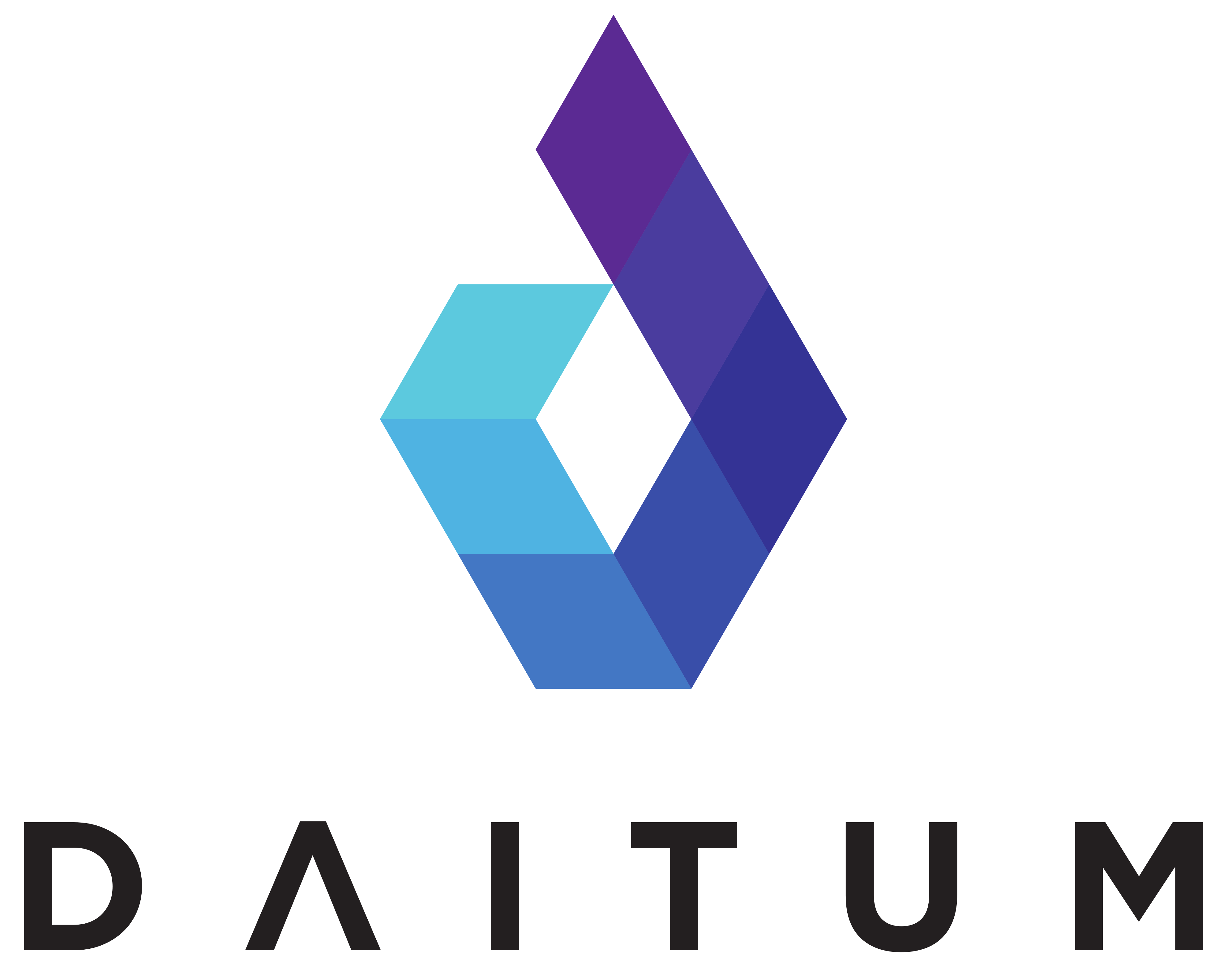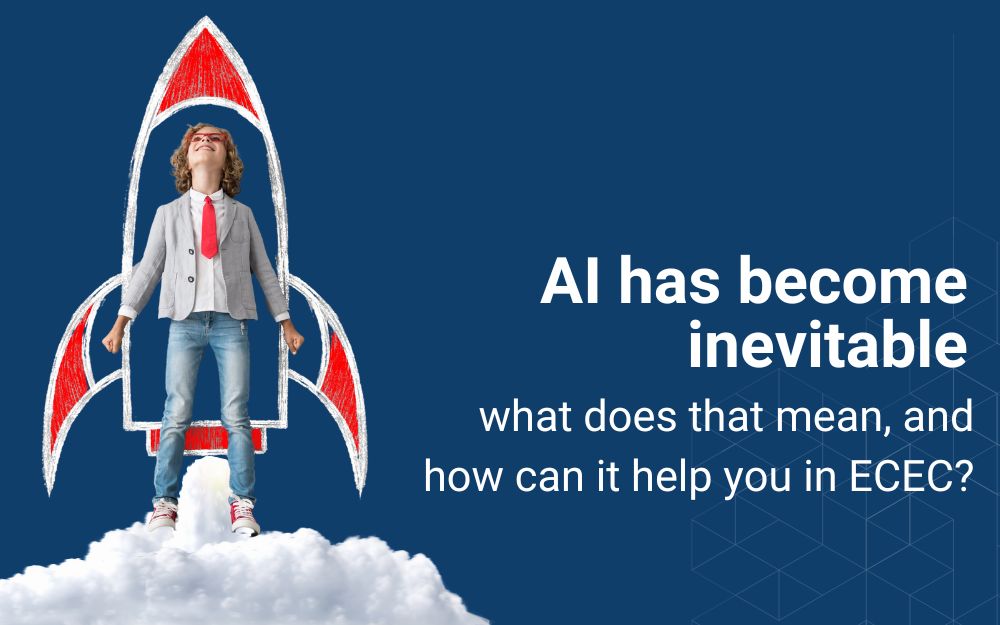The advent of artificial intelligence (AI) has been a game changer for many sectors and industries, including early childhood education and care (ECEC).
In the ECEC space products and services which use AI to write observations and reports, assist with Certificate III and Diploma knowledge gathering, and respond to parent emails and enquiries are readily available, and newer solutions, such as Daitum’s pioneering rostering platform are emerging in response to the administrative burden which comes with running a compliant service, while meeting the complex needs of each team member.In the piece below we explore some of the queries and questions which ECEC professionals have about AI, and how it is, or could be, utilised in ECEC.
What is AI?
Coined in the 1950s, the term Artificial Intelligence (AI) refers to the creation of machines that are intelligent. It covers an ever-changing set of capabilities as new technologies are developed and encompasses technologies like machine learning, deep learning and computational optimisation.
The goal of AI is to either solve specific problems extremely well or rival, if not exceed, human-level intelligence. AI is all around us, these days: embedded in our mobile phones, social media, and in tools such as ChatGTP.
AI can be an incredibly complex field of endevour, and one which Daitum’s team of senior analysts, computer scientists, and global academics are extremely passionate about. The challenge is to make the technology as relevant and accessible as possible, which is what Daitum is all about.
To use an ECEC example, Daitum’s Rostering for Childcare can generate a complete and fully compliant roster for a centre in as little as 15 minutes at the click of a button while taking into account individual staff preferences, leave requirements and qualifications. This frees up busy service leaders to dedicate themselves to other tasks and maintains a satisfied workforce.
What are some of the possible benefits of AI for ECEC?
For many, the appeal of AI in an ECEC context is in reducing administrative burdens and freeing up time by streamlining everyday tasks like rostering, data analysis, and some aspects of communication with parents and families, like summative reports and learning stories.
In many cases, thanks to its high level of complexity, AI can generate solutions which were previously not considered, generating better outcomes.
On a broader, provider-level scale, AI has the power and capability to assess all available data , and create streamlined and efficient solutions which are optimised to each service’s unique context.
Who’s leading the AI charge?
Some reports suggest that one in three Australian employees are using AI already, but more than 70 per cent of businesses are not yet on board. This means there is a gap between what employees are doing, and what employers have policies, procedures and practices for, which may present a challenge, particularly in a highly regulated sector such as ECEC where children’s safety is paramount.
As McKinsey and Company note, most organisations are ‘dipping a toe’ into the AI pool—not cannonballing.
Slow progress toward widespread adoption is likely due to cultural and organisational barriers. But leaders who effectively break down these barriers will be best placed to capture the opportunities of the AI era. And—crucially—companies that can’t take full advantage of AI are already being sidelined by those that can, in industries like auto manufacturing and financial services.
Gartner estimates that in 2023 more than 33 per cent of large organisations had analysts practicing decision intelligence, including decision modelling.Not all AI is created equal, and when considering AI solutions, particularly in a vulnerable sector like ECEC, it’s important to understand that, broadly speaking, AI is an area of technology and research comprised of many different disciplines.
Terms like predictive analytics, machine learning, deep learning and now large language models are all different concepts and techniques that come under the umbrella term AI.
Trying to understand what AI is and what it can do for us, it is important and useful to highlight the difference between Artificial General Intelligence and Narrow AI. The former is what most people think of: machines with human-like intelligence, perhaps even conscious. Just like Hollywood likes to portray in its blockbuster movies.
Narrow AI, on the other hand, is much more concerned with solving specific problems. All the everyday examples mentioned earlier fall into this category.
Narrow AI – the type used in Daitum’s rostering solutions – is incredibly mature and consistently outperforms humans across a considerable number of domains. Think of narrow AI as a set of tools that allow us to solve specific problems and make better decisions.
A number of respected ECEC services including Eden Academy and Sesame Lane have taken advantage of these sophisticated tools and engaged with Daitum’s expertise, placing themselves front of line when it comes to innovative approaches to staff satisfaction and retention.
What’s next?
The possibilities of AI are endless, particularly in an educational setting.
Daitum’s team are constantly refining their product based on the feedback from end users, and provide rapid and responsive updates to compliance changes in the ECEC sector.
In 2024 the team plans to….
Considering AI?
For those services and providers who would like to integrate AI tools, Daitum is the perfect place to start.
Daitum’s Rostering for Childcare combines the power of advanced AI with a deep understanding of the ECEC sector. It has been crafted to provide a solution that specifically caters to the needs and challenges of early childhood services.
By providing optimised rosters for centre managers Daitum drastically reduces the time spent creating rosters, and eliminates the guesswork involved in managing staff ratios across the day. This gives educators more time to focus on quality of service rather than worrying about compliance, all the while keeping labour costs low.
Daitum helps services to save time, eliminate bias, improve efficiency and ensures compliance, leaving more time for the things that matter most.
To learn more about how Daitum can support your service, request a demonstration here.

